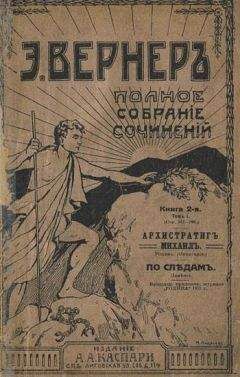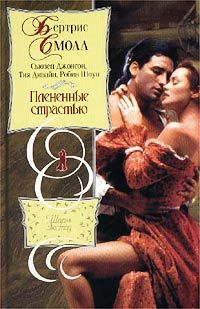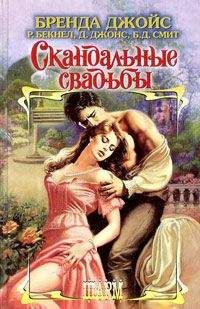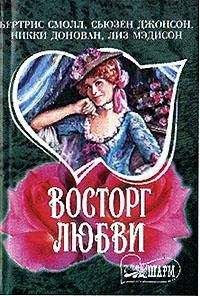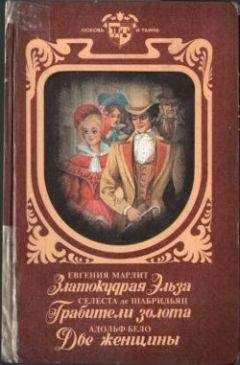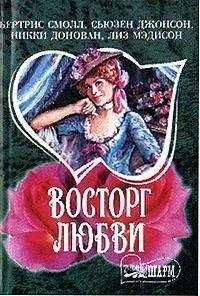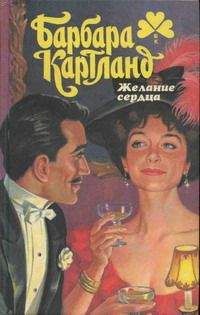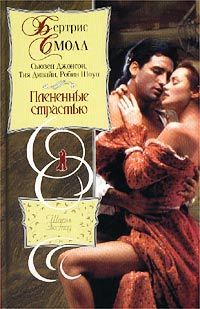Anna Godbersen - Envy

Скачивание начинается... Если скачивание не началось автоматически, пожалуйста нажмите на эту ссылку.
Жалоба
Напишите нам, и мы в срочном порядке примем меры.
Описание книги "Envy"
Описание и краткое содержание "Envy" читать бесплатно онлайн.
Jealous whispers.
Old rivalries.
New betrayals.
Two months after Elizabeth Holland's dramatic homecoming, Manhattan eagerly awaits her return to the pinnacle of society. When Elizabeth refuses to rejoin her sister Diana's side, however, those watching New York's favorite family begin to suspect that all is not as it seems behind the stately doors of No. 17 Gramercy Park South.
Farther uptown, Henry and Penelope Schoonmaker are the city's most celebrated couple. But despite the glittering diamond ring on Penelope's finger, the newlyweds share little more than scorn for each other. And while the newspapers call Penelope's social-climbing best friend, Carolina Broad, an heiress, her fortune — and her fame — are anything but secure, especially now that one of society's darlings is slipping tales to the eager press.
In this next thrilling installment of Anna Godbersen's bestselling Luxe series, Manhattan's most envied residents appear to have everything they desire: Wealth. Beauty. Happiness. But sometimes the most practiced smiles hide the most scandalous secrets. .
It was one of the great pleasures of her life, for Henry was tall and lean and possessed of a chieftain’s cheekbones and a rakish mien that made all eyes turn to him. As a debutante, Penelope had grown accustomed to being looked at, but the envious intensity of the stares she encountered upon entering the second-floor music room, which was full of old money and good connections on that Thursday evening, was superior even to what she was used to. She wore a haughty smile, her plush lips twisted up to the right no more than was necessary, and a dress of cardinal-colored silk that a thousand elegant darts brought in close to her lean frame. Her dark hair was collected in an elaborate bun, and a line of short bangs divided her high, proud forehead.
Penelope cast an appraising gaze at the paneled murals, done by one of the leading talents of Europe, and the polished mantel that had been transported in pieces from Florence. She knew this and much more about Leland Bouchard’s home because she wanted Henry to build a town house for them and had collected newspaper clippings on this one and others like it. He had not yet given her any indication that he would do so, but, like everything Penelope wanted, it was only a matter of time and perhaps a little of her own rough brand of persuasion before it was hers.
Above the gentle din of decorous voices and clinking glasses, Penelope heard her name being pronounced with all its most recent and glorious trappings. “Mrs. Henry Schoonmaker!” went the beautiful sound, and Penelope turned. As she did, the fishtail of her skirt swept across the Versailles parquet. She immediately noted the approach of Adelaide Wetmore, who wore a dress of pewter faille. Her eyes were moist with self-regard, for her engagement to Reginald Newbold had only just been announced, and she was looking pleasantly weak with all the congratulations. She might have been pretty, Penelope reflected charitably, if not for her disproportionate mouth, and the way it garishly showcased her broad teeth.
“Why, Adelaide.” Penelope extended her white-gloved hand so that the diamond bracelet she wore fell down her wrist and caught the light. “Congratulations.”
“Thank you,” the other girl gushed. She took Penelope’s hand and made a dipping motion, almost as though she were going to curtsy. “We were all so inspired by your wedding,” she added with painful sycophancy. “What a celebration of love it was.”
Penelope communicated her gratitude with a few bats of her black eyelashes, and deduced from the way Adelaide was looking at the couple whose love she claimed to be inspired by that Henry’s gaze had wandered, and that he was exerting exactly no energy in trying to seem interested in the matrimonial doings of their peers. Penelope smiled her goodbye, and then she and her husband — who she was now realizing smelled of musk but even more strongly of cognac — pushed farther into the room. That was when Henry stumbled almost imperceptibly, catching himself on her arm, and Penelope felt her self-assurance flag a little over the sudden fear that someone might notice Henry’s drunkenness and begin to draw their own conclusions.
As she moved through the crowd, under the high polish of the vaulted ceiling, she tried to secure her grip on Henry. It wasn’t easy — but then, of course, it never had been. She gave knowing little nods of her head in the direction of some of the younger Mrs. Vanderbilts, assembled near the vast central palm in the middle of the room, and didn’t dare look in the direction of the man she was almost forcibly pulling along with her. She had believed him to be hers, time and again, but still she could not stay the feeling that he might at any moment slip through her fingers.
It had begun between them the previous summer, when her best friend, Elizabeth Holland, had been abroad, and she and Henry had started meeting amorously in the shadowy corners of their family homes. But then Elizabeth had returned in the fall and, with precious little reason, become Henry’s fiancée. Of course, that had been according to the wishes of their parents, and Penelope had rescued both of them from an unhappy marriage by helping Elizabeth fake her death. As she felt Henry list just slightly, she considered how poorly her efforts had been repaid, for not long after Elizabeth’s “death,” Henry had taken up with her little sister, Diana. That turn of events had not been entirely bad, since the fact of the younger Holland’s whoring about was the piece of information that Penelope had used to persuade Henry to marry her. All she had ever wanted was to be Mrs. Schoonmaker, and none of them wanted a messy scene.
Penelope possessed the mettle of a society lady ten years older, and there was forcefulness evident in her smallest movements. But even as Mrs. Schoonmaker, Penelope was unpleasantly surprised to discover that her ability to control Mr. Schoonmaker fell somewhat short. They glided amongst the guests, and when a waiter appeared carrying champagne flutes it was all she could do to keep Henry from lunging for one.
“Don’t you feel drunk enough already?” she admonished. Her smile never wavered, and she brought her upper lip back just enough to reveal the perfect whiteness of her teeth.
“I’ve had a lot,” he replied slowly, without particular venom, although the drink might possibly have been impairing his inflection. “But not enough to make me want to spend the evening with you, my dear.”
Penelope briefly shut the lids of her large eyes and stifled any feelings his comment might have aroused. Then she batted her mascara-darkened lashes and let her lake blue irises roll right and left. No one had heard, she determined with a small release of her shoulders, except perhaps the waiter, who wouldn’t have dreamed of looking her in the eye. When she spoke again, it was with effortless ease and a glass of champagne in her hand:
“When you put it that way, I suppose I should have one too.”
Thus fortified, the most envied couple in top-drawer Manhattan moved onward through the throng. The members of the Automobilist Club were making grand pronouncements about upcoming races, and the ladies who wanted to be near them were smiling patient smiles and assuming the poses of eager listeners.
“Ah, the Schoonmakers!”
Penelope twisted the length of her white neck so that the full blaze of her smile could be fully appreciated by her host. “Mr. Bouchard,” she purred, as he bent his long torso and placed his lips on her gray, full-length glove. The warmth in her voice was studied and convincing; it was a tone she reserved for men like Leland, who was heir to the Bouchard banking fortune and besides that universally liked. He was that rare high-born New Yorker who somehow or other had managed to make more friends than enemies, and was a particular friend of her brother, Grayson. As younger men they had lived in adjoining rooms at St. Paul’s. Penelope, ever watchful, noted Grayson’s presence by the window, where he was ensconced in conversation with her mother-in-law, the senior Mrs. Schoonmaker, whose dress of opalescent chiffon tiers did little to detract attention from her.
“I hope you’re both enjoying yourself,” Leland went on earnestly as he clasped Henry’s hand. His light blue eyes were open wide beneath his broad forehead, as though their enjoyment really was a crucial issue for him, and for all Penelope knew, it was. “Did you see the motorcar downstairs?”
“Could not have mishedut,” Henry answered enthusiastically, slurring the last two words.
Penelope elbowed him while maintaining her steady, bright gaze. “Such a beautiful object, Leland.”
“Thank you.” Leland’s eyes drifted and his chest rose, and for a moment he was someplace else. “Speaking of beauties,” he went on, his attention returning to Penelope, and this time with an added touch of sympathy, “how is your dear friend Elizabeth? It was terrible what happened, and not seeing her out has made us all worry.”
Until that moment Penelope had maintained a strong, smiling posture, and had stayed uncowed by Henry’s misbehavior or any askance glances from whichever young ladies in the room flattered themselves by imagining that they were the rival of the former Miss Hayes. But now her mouth constricted and she heard herself swallow hard. Leland went on looking at her with that same concerned expression. Henry’s weight on her arm bobbed a moment and then grew heavier. She only hoped that her face did not betray the insecurity this inquiry brought on, for of course Elizabeth was her dear friend by reputation only. Penelope had barely seen her since her unexpected return from what was supposed to have been a long exile in a western state — for truly, what was there to say?
“She is very well.” Penelope began to regain her composure, and even as she spoke reminded herself that she really would have to make a show of seeing Elizabeth, one that the papers took note of, and soon. “But it is still early for her to be going out. After her trauma. You understand, of course.”
“Of course.” Leland bowed his head, appearing almost embarrassed for having asked after a girl who had gone unaccounted for for over two months, and who might indeed have suffered any number of grave injustices. But before he could further anyone’s discomfort, he succumbed to the calls of his fellow driving enthusiasts, and excused himself. “Please do enjoy,” he said as he slipped into the crowd.
Penelope did not look after her host as he left. She stared straight ahead and reminded herself what a lucky thing it was that he was not a gossip and that he wouldn’t be searching for signs that Mrs. Henry Schoonmaker’s marriage or friendships were not what they seemed. For a moment she reflected on how to avoid such a mistake again, and then she turned toward Henry.
His dark eyes were focused in the direction of the huge windows and the night scene they held, and they looked less glassy than before. There was something almost like clarity in his face when he turned toward his wife, and when he spoke, it was deliberately.
“Promise me,” he said, meeting her gaze, “that if someone brings up the Hollands again you’ll take me home.”
The new dressing room on the second floor of the Schoonmaker mansion, which had until recently held Henry’s collection of unread first editions, was dark. Once she had been undressed, Penelope sent her maid away, instructing the girl to shut off all but one of the lights before she left. Penelope stood, looking into her full-length triptych mirror with the polished cherrywood frame, and let her head rest back on her neck. It was only in September that her family had moved into its Fifth Avenue mansion, an event that was widely understood in the press as a declaration of the Hayeses’ presence in society, and now half a year later she was living at an even better address, with an older family, on a more established section of the avenue.
She let her head sway back and forth, and as she appraised her reflection she thought — as she had thought before — how perfect she and Henry looked together. For they were both tall, both dark-haired. They had the same long limbs and the same haughty posture. There were times when she wondered if they didn’t look like each other, if God in his infinite wisdom had not created them out of the same impeccable stuff so that they could recognize each other when they met. She was not wearing any of her lingerie, which was very fine and which had been handmade in France. She was wearing stockings and a black shirtwaist and nothing else. From the next room she could hear Henry’s rising, whistling breath, and hoped that he was not snoring, that he had not fallen asleep.
She did not wear lingerie, because lingerie had already failed. What she wore now had a special significance for her — for both of them. She had answered the door wearing the same thing last June, the first time she invited Henry to the Waldorf-Astoria, where she and her family had lived while their house was being constructed. He hadn’t left until the following morning, by which time she had already imagined herself as his bride.
She put out the last light, and stepped past the aubergine damask — covered screen and into her bedroom. It had been Henry’s room originally, but she had banished the black leather club chairs and hunting trophies to the basement when she moved in. The broad, simple tables, which he had vaguely protested were from Great Britain and possessed historical significance, had been given to the servants. The room was now all white and gold and rococo, and the edges of every piece of furniture curved voluptuously. A waterfall of white and gold brocade descended from the high canopy at the head of the bed, and under it, on the ivory bedspread, lay Henry, with his hat and shoes still on. His hat tipped slightly over his eyes, and his legs were crossed at the ankles.
“Henry.” Penelope kept her voice soft and rested a hand on her hip. He took a breath and stirred just enough to shift the hat on his head. In a moment it tumbled, softly, onto the plush white carpet.
“Henry,” she said again. “Henry!”
He sat up then, his eyes a little wild with surprise. His dark hair had been neatly pomaded to the right earlier in the evening, but it was now sticking up in various places. He pulled at his white tie, which came undone in his hand. For a moment he looked at her, and she felt the old tingling warmth.
She crossed to him, her high-heeled slippers sinking into the carpet, and sat down on the edge of the bed. She reached up and took hold of his tie, then gently pulled it off. It fell soundlessly to the floor beside his hat, as she let her fingers glide from the point of his chin down his neck and to the first button of his shirt. She had succeeded in undoing one when he pushed away from the plush bed, and rose unsteadily to his feet.
“Henry?”
“Good night,” he answered, pausing only to pick up his hat and tie as he walked into the adjoining room, where he sometimes took his tea, and to the black leather sofa with the piles of kilim pillows in its corners.
Penelope threw herself back against the bed and exhaled hotly, feeling — in her shoulders and all over — an aching for something just the slightest bit beyond her reach. Her disappointment was monstrous and her pulse quick, and she could not stop the fearful thoughts about what might come to pass if the news got out that this was how every night of her short married life had ended.
Four
We are all eager to catch glimpses of Elizabeth Holland, so lately returned to the realm of the living, but it is like trying to see some especially rare royal. Though her younger sister was seen out at the Leland Bouchard ball last night, the elder Miss Holland remained behind closed doors. Does her mother fear future kidnapping attempts? Have the young lady’s delicate sensibilities been so flattened by the violence she was witness to in the Grand Central Station? Or is there some great secret that the public is being shielded from? We remain curious as ever.
— FROM CITÉ CHATTER, FRIDAY, FEBRUARY 9, 1900
A FIRE HUMMED IN THE DRAWING ROOM OF THE town house at No. 17 Gramercy Park South, which had provided shelter to three generations of the Holland family. It was easy to hear the snapping of kindling in the flames, because the occupants of that room were uncommonly quiet. They had settled into three of the several somewhat-the-worse-for-wear bergère chairs — which were arranged across the room at seemingly random distances from the hearth — after breakfast. Mrs. Holland sat closest to the warmth in her black crepe dress with the high neck and narrow-buttoned wrists; her elder child, Elizabeth, sat not far off. A book was open in the girl’s lap, but she did not read. Snowden Trapp Cairns, who had been a business associate of the late Mr. Edward Holland and who had so often lately made himself their savior, lounged to her right. A portrait of Elizabeth’s father peered down at them from above the fireplace, with an expression perhaps more skeptical than sage.
Подписывайтесь на наши страницы в социальных сетях.
Будьте в курсе последних книжных новинок, комментируйте, обсуждайте. Мы ждём Вас!
Похожие книги на "Envy"
Книги похожие на "Envy" читать онлайн или скачать бесплатно полные версии.
Мы рекомендуем Вам зарегистрироваться либо войти на сайт под своим именем.
Отзывы о "Anna Godbersen - Envy"
Отзывы читателей о книге "Envy", комментарии и мнения людей о произведении.





